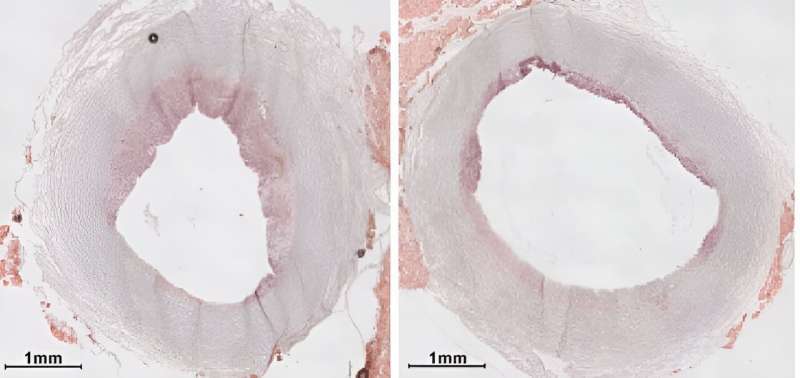Researchers at Michigan State University have developed a groundbreaking nanotherapy that precisely targets inflammation in arteries, a primary driver of cardiovascular disease. This innovative approach activates the immune system to clear out dangerous plaque buildup, offering a promising solution to the leading cause of death in the United States. The research, published in the journal Nature Communications, represents a critical step towards safer and more effective cardiovascular therapies.

Tackling Arterial Inflammation, the Precursor to Heart Disease
Cardiovascular disease is the number one killer in the United States, and the culprit is often the inflammation of arteries. This inflammation leads to the buildup of plaque, a dangerous substance that can partially or even completely block the flow of blood through the arteries.
Previous treatments have focused on addressing the blockage itself, such as inserting stents to improve blood flow. However, the research team at Michigan State University has taken a different approach, targeting the root cause of the problem – the inflammation that triggers the plaque buildup in the first place. Their innovative nanotherapy selectively targets specific immune cells within the plaque, effectively “eating away” at the core and reducing overall inflammation in the blood vessels.
Precision Targeting: The Key to Effective and Safe Nanotherapy
The key to the success of this nanotherapy is its precise targeting of the inflammatory cells within the plaque. Unlike previous treatments that may have caused unintended side effects, this nanotherapy is designed to specifically target the problematic immune cells, leaving the rest of the body unaffected.
According to Bryan Smith, an associate professor at the Department of Biomedical Engineering in the College of Engineering and MSU’s Institute for Quantitative Health Science and Engineering, “Just as importantly, we saw none of the side effects that would have been anticipated had the therapy not been precisely targeted.” This precision is crucial, as it ensures the treatment is both effective and safe for patients.
From Mice to Pigs: Scaling Up for Human Clinical Trials
The research team has already demonstrated the effectiveness of their nanotherapy in animal models, first in mice and now in pigs. The ability to scale up the production of the nanotherapy infusion from microliters to liters is a significant milestone, as it brings the treatment closer to human clinical trials.
Using advanced imaging techniques, such as positron-emission tomography (PET) scans, the researchers were able to measure the effects of the therapy on the pig arteries. The results were promising, showing a measurable decrease in inflammation levels within the plaque. This critical step forward represents a promising path towards translating the nanotherapy from the lab to patient care, potentially transforming the way we treat cardiovascular disease.
